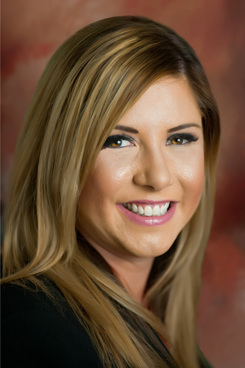Meet George Flint and Sarah Fox, Republican Candidates for Judge of Texas' 401st District Court in McKinney
George Flint, a partner in Scheef & Stone, and McKinney criminal-defense lawyer Sarah Fox are competing for the Republican nomination for the vacant bench in Collin County.
June 23, 2020 at 01:51 PM
8 minute read
 Sarah Fox,left, and George Flint,right. Courtesy photos
Sarah Fox,left, and George Flint,right. Courtesy photos
The two judicial candidates in the runoff McKinney's 401st District Court have different ideas of the court's caseload and different arguments about how their experience makes them the better pick.
George Flint, a partner in Scheef & Stone, and McKinney criminal-defense lawyer Sarah Fox are competing for the Republican nomination for the vacant bench in Collin County. Whoever wins will go on to compete against Democratic candidate Tonya Holt in November.
Fox argues that 70% of the court's docket is made up of felony criminal cases and that her background as a prosecutor who is board certified in criminal law makes her more qualified. She also claims she's handled more jury trials.
"My opponent has never handled a criminal trial," Fox wrote. "My opponent is simply not a trial attorney."
But Flint claims that 80% of a general jurisdiction judge's time goes to family and civil cases, and he has 39 years of experience in those areas, while Fox has none. Flint says he's well-supported in the local legal community.
He has been "endorsed by two retired Court of Appeals Justices, all five of Collin County's Texas state representatives, the Collin County judge, and well-respected board certified members of the Collin County criminal, family and civil bars," he writes.
Texas Lawyer is publishing Q&As with judicial candidates in primary runoffs. Early voting is June 29 to July 10 and election day is July 14.
Here are the Q&As for Flint and Fox.
Read more: Texas Voters: Meet the Candidates Running for Judge in July Primary Runoffs
George Flint
What is a brief biography of work experience, educational qualifications and career honors that you want voters to know about?
 George Flint partner with Scheef & Stone.
George Flint partner with Scheef & Stone.B.S. from M.I.T. (1972-Management); M.B.A. from Wake Forest University (1974); J.D. from Southern Methodist University (1980); Associate Judge – Probate (Mental Health); arbitrator for Better Business Bureau; partner in litigation, corporate and real estate sections, Scheef & Stone; aV rated, Martindale-Hubbell.
Why do you want this position?
I believe that, if elected, I can use my 39 years of legal experience, as well as my life experience and judicial and political conservative philosophies to be an effective, efficient and excellent state judge for Collin County.
How are you different or better suited for the bench than your opponent?
The 401st District Court in Collin County is a court of general jurisdiction, hearing criminal, family and civil cases. Eighty percent of the time spent by general jurisdiction judges in Collin County is spent on family and civil cases. My opponent has no experience in family and civil cases. I have 39 years of experience in civil law, which includes many aspects of family law (including courtroom experience in trying personal injury, real estate, contract, commercial, employment, civil rights, business dispute, insurance, intellectual property and tort cases). I am a partner in the litigation section of Scheef & Stone, have been endorsed by two retired Court of Appeals justices, all five of Collin County's Texas state representatives, the Collin County judge, and well-respected board certified members of the Collin County criminal, family, and civil bars. I am invested in Collin County, having been a longtime resident of over 40 years, married for 44 years with grandchildren, all of whom are local to Collin County, active in my church and a proud Republican. I am a constitutional conservative, believe in the rule of law and will respect all people who appear in my court. I have a technology degree from M.I.T. and a master of business degree, as well as my law degree, which give me the ability to understand the complexities which confront society today and to deal with those complexities efficiently, effectively, and fairly. Finally, I have been endorsed by all the conservative organizations which have endorsed in this race to date –– Texas Right to Life, Texans for Courageous Courts, Patriot Texas, Texas Home School Coalition, Texas Values Action and the Collin County Conservative Republicans. I am the clear conservative choice for district judge, and I welcome anyone to visit my website, http://george4.judge.com, for further information and to contact me.
How would you go about managing this court's docket efficiently and effectively?
- Heavier use of afternoon dockets
- Standing discovery, protective and scheduling orders
- Early scheduling conferences with counsel
- Reasonable time limits on presentation of evidence and argument
- Encouragement of alternative dispute resolution mechanisms
Where can voters go for more information about you?
- Website: http://www.george4judge.com
- Resume
Sarah Fox
What is a brief biography of work experience, educational qualifications and career honors that you want voters to know about?
 Sarah Fox. Courtesy photo
Sarah Fox. Courtesy photoI began my career as a prosecutor for the Collin County District Attorneys Office and prosecuted both misdemeanor and felony criminal cases for almost five years. Since that time I have been in private criminal defense practice. I have handled every level of offense from traffic tickets to murder cases, and have experience in state, federal, and appellate courts. I am also board certified in criminal law by the Texas Board of Legal Specialization.
Why do you want this position?
I was raised to believe any gifts God gives us are to be used for the betterment of our community, and I've lived my entire adult life honoring that upbringing. I began by serving our community as an assistant district attorney under the guidance of Collin County District Attorney Greg Willis. As a criminal defense attorney, I have served by performing pro bono services to individuals and clients of The Family Place domestic violence shelter. When Judge Mark Rusch announced that he was retiring from the 401st District Court, a court which holds a docket of 70% criminal cases, I again felt called to use the gifts and experiences God has given me to fill a specific need in our community. Because no other candidate in this race has any criminal law experience, there is a void being left in the 401st for someone with the background and experience to fully serve the citizens of Collin County.
How are you different or better suited for the bench than your opponent?
I am better suited than my opponent for this bench for three reasons. First and primarily, the 401st is a court whose docket is 70% serious felony criminal cases. My opponent has never handled a criminal trial, while I am a former felony prosecutor and board certified in criminal law by the Texas Board of Legal Specialization. Second, in all types of legal matters the court hears, the judge is responsible for overseeing contested hearings and trials on a weekly basis. My opponent is simply not a trial attorney; his practice lies outside of the courtroom. In my 10 years as an attorney, I have already tried literally dozens more jury trials than my opponent has in his 39 years, and I have thousands of hours spent arguing in the courtroom. Finally, as a lifelong Republican, it is important to me to protect the conservative values of the Collin County judiciary, and it is no secret that the Democratic Party is trying desperately to win seats such as the 401st in the general election. Because my opponent is constitutionally barred from seeking a second term, he would leave the bench of the 401st in a very vulnerable position in the 2024 election for attack by the Democratic Party. I, by contrast, could and would continue to serve the citizens of Collin County and the Republican Party for decades to come.
How would you go about managing this court's docket efficiently and effectively?
It is important to utilize your court staff to help keep scheduling orders in compliance and to have the expectation among attorneys that cases should be moved quickly and effectively. One of the best ways I've seen that goal accomplished in practice is by requiring counsel to approach the judge after a certain amount of time has passed on a case, thus creating an atmosphere of accountability while at the same time keeping the judge informed of how the docket is moving.
Where can voters go for more information about you?
- Website: www.sarahfoxforjudge.com
- Resume
This content has been archived. It is available through our partners, LexisNexis® and Bloomberg Law.
To view this content, please continue to their sites.
Not a Lexis Subscriber?
Subscribe Now
Not a Bloomberg Law Subscriber?
Subscribe Now
NOT FOR REPRINT
© 2025 ALM Global, LLC, All Rights Reserved. Request academic re-use from www.copyright.com. All other uses, submit a request to [email protected]. For more information visit Asset & Logo Licensing.
You Might Like
View All
Conspiracy Suits Against Quinn Emanuel, Roc Nation Moved to Federal District Court

JCPenney Seeks Return of More Than $1.1M From Jackson Walker For Bankruptcy Work
3 minute read
Ex-Appellate Court Judges Launch Boutique Focused on Plaintiffs Appeals
2 minute read
O'Melveny, White & Case, Skadden Beef Up in Texas With Energy, Real Estate Lateral Partner Hires
5 minute readLaw Firms Mentioned
Trending Stories
- 1Uber Files RICO Suit Against Plaintiff-Side Firms Alleging Fraudulent Injury Claims
- 2The Law Firm Disrupted: Scrutinizing the Elephant More Than the Mouse
- 3Inherent Diminished Value Damages Unavailable to 3rd-Party Claimants, Court Says
- 4Pa. Defense Firm Sued by Client Over Ex-Eagles Player's $43.5M Med Mal Win
- 5Losses Mount at Morris Manning, but Departing Ex-Chair Stays Bullish About His Old Firm's Future
Who Got The Work
J. Brugh Lower of Gibbons has entered an appearance for industrial equipment supplier Devco Corporation in a pending trademark infringement lawsuit. The suit, accusing the defendant of selling knock-off Graco products, was filed Dec. 18 in New Jersey District Court by Rivkin Radler on behalf of Graco Inc. and Graco Minnesota. The case, assigned to U.S. District Judge Zahid N. Quraishi, is 3:24-cv-11294, Graco Inc. et al v. Devco Corporation.
Who Got The Work
Rebecca Maller-Stein and Kent A. Yalowitz of Arnold & Porter Kaye Scholer have entered their appearances for Hanaco Venture Capital and its executives, Lior Prosor and David Frankel, in a pending securities lawsuit. The action, filed on Dec. 24 in New York Southern District Court by Zell, Aron & Co. on behalf of Goldeneye Advisors, accuses the defendants of negligently and fraudulently managing the plaintiff's $1 million investment. The case, assigned to U.S. District Judge Vernon S. Broderick, is 1:24-cv-09918, Goldeneye Advisors, LLC v. Hanaco Venture Capital, Ltd. et al.
Who Got The Work
Attorneys from A&O Shearman has stepped in as defense counsel for Toronto-Dominion Bank and other defendants in a pending securities class action. The suit, filed Dec. 11 in New York Southern District Court by Bleichmar Fonti & Auld, accuses the defendants of concealing the bank's 'pervasive' deficiencies in regards to its compliance with the Bank Secrecy Act and the quality of its anti-money laundering controls. The case, assigned to U.S. District Judge Arun Subramanian, is 1:24-cv-09445, Gonzalez v. The Toronto-Dominion Bank et al.
Who Got The Work
Crown Castle International, a Pennsylvania company providing shared communications infrastructure, has turned to Luke D. Wolf of Gordon Rees Scully Mansukhani to fend off a pending breach-of-contract lawsuit. The court action, filed Nov. 25 in Michigan Eastern District Court by Hooper Hathaway PC on behalf of The Town Residences LLC, accuses Crown Castle of failing to transfer approximately $30,000 in utility payments from T-Mobile in breach of a roof-top lease and assignment agreement. The case, assigned to U.S. District Judge Susan K. Declercq, is 2:24-cv-13131, The Town Residences LLC v. T-Mobile US, Inc. et al.
Who Got The Work
Wilfred P. Coronato and Daniel M. Schwartz of McCarter & English have stepped in as defense counsel to Electrolux Home Products Inc. in a pending product liability lawsuit. The court action, filed Nov. 26 in New York Eastern District Court by Poulos Lopiccolo PC and Nagel Rice LLP on behalf of David Stern, alleges that the defendant's refrigerators’ drawers and shelving repeatedly break and fall apart within months after purchase. The case, assigned to U.S. District Judge Joan M. Azrack, is 2:24-cv-08204, Stern v. Electrolux Home Products, Inc.
Featured Firms
Law Offices of Gary Martin Hays & Associates, P.C.
(470) 294-1674
Law Offices of Mark E. Salomone
(857) 444-6468
Smith & Hassler
(713) 739-1250






